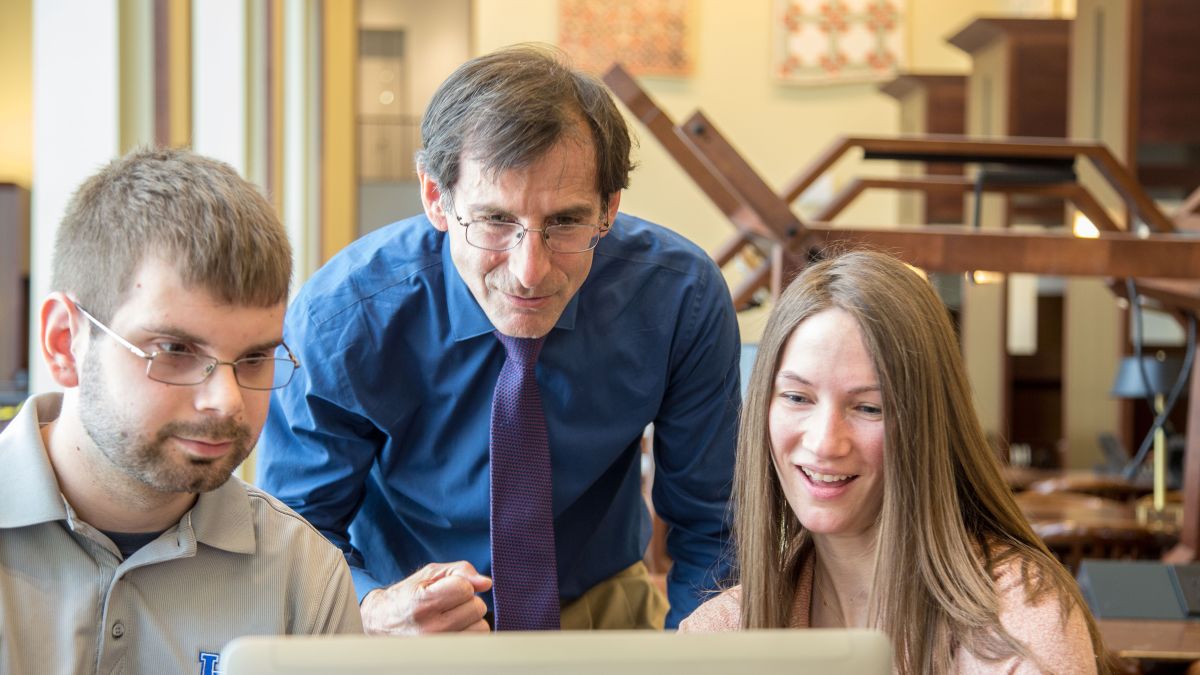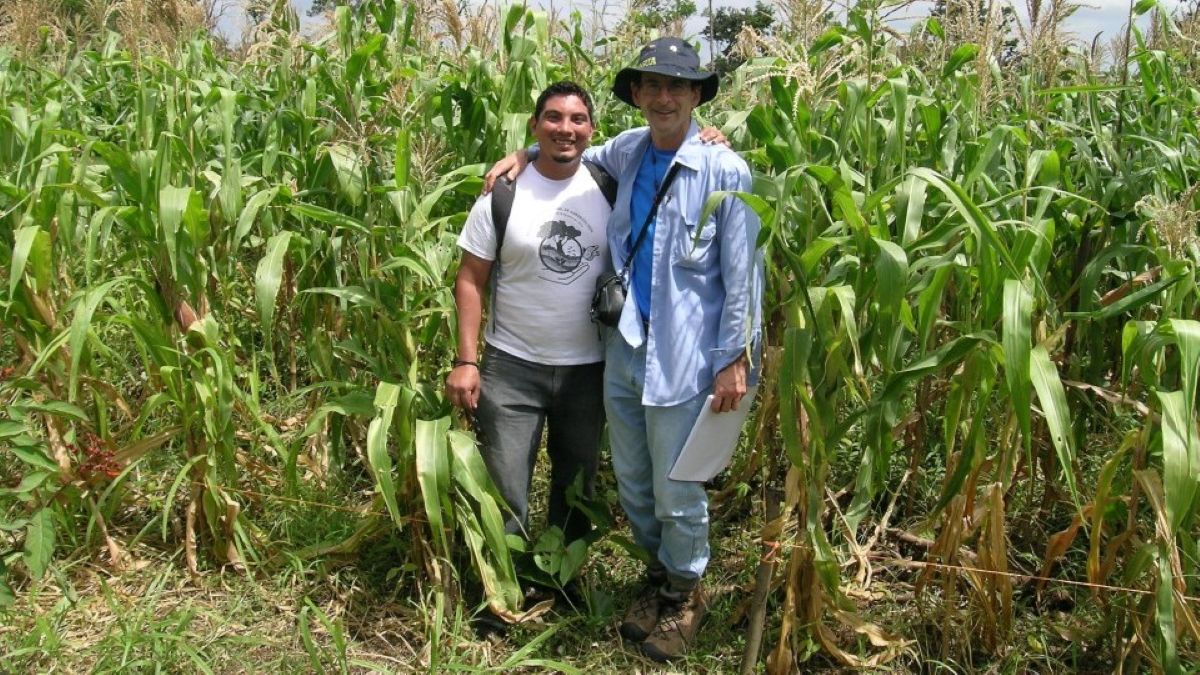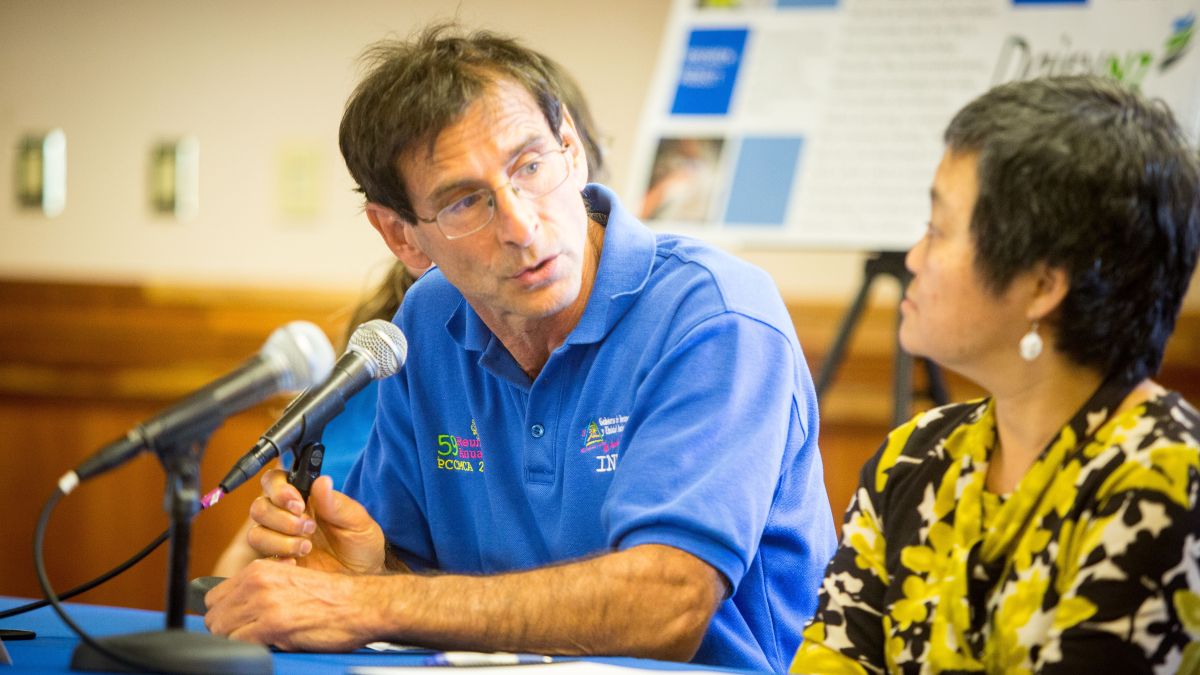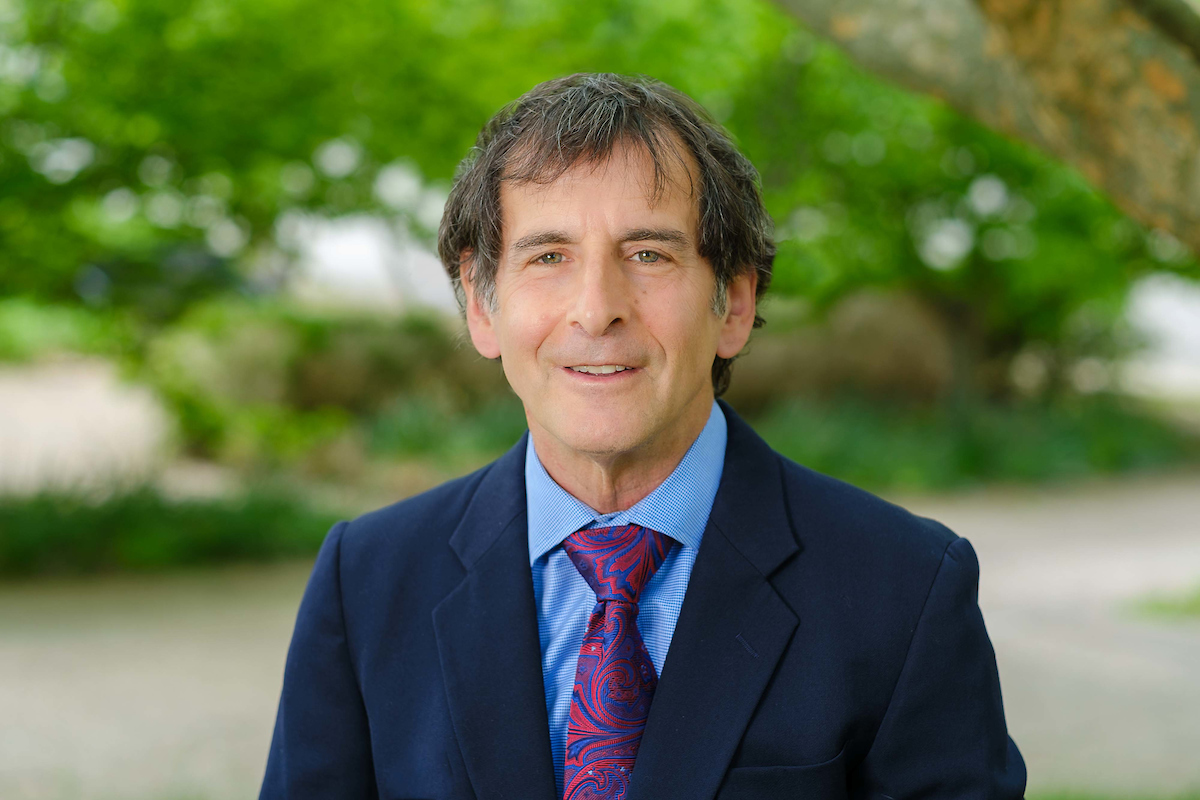‘Everything comes from plants’: UK professor dedicates 35 years to plant pathology
‘Everything comes from plants’: UK professor dedicates 35 years to plant pathology


A love for sustainability, international agriculture, teaching and teamwork are the cornerstones that best defined Paul Vincelli’s plant pathology career at the University of Kentucky.
After 35 years, Vincelli is retiring as a Cooperative Extension Service professor and plant pathologist at the Martin-Gatton College of Agriculture, Food and Environment—leaving a legacy in extension, teaching and service. His work focused primarily on applied research and extension of corn, forage and turfgrass diseases as well as emerging issues in plant pathology and global agriculture.

For more than three decades, Vincelli has been an ambassador, advocate and educator of plant pathology and genetic engineering—travelling all over the world, writing numerous publications and cited papers, syncing up with some of the best researchers and scientists, and finding innovative ways to teach his students, and the community, about this dynamic field.
“It was an honor to work at the University of Kentucky,” Vincelli said. “I’m very proud of how extension programming continues to grow and serve the entire community. I couldn’t have done half of what I did without a team of dedicated individuals that helped me along the way.”
One of those teammates was Larry Grabau, current professor emeritus in the Department of Plant and Soil Sciences at Martin-Gatton CAFE, who was a strong encourager in Vincelli developing and delivering the online Master of Science in Science Translation and Outreach (STO) degree program.
“I very much enjoyed working with Paul on the initiation of the STO program for the benefit of our county extension professionals,” Grabau said. “There were abundant challenges; however, Paul continued to find the energy and to take the initiative to keep that project going forward. His courageous and thoughtful support of sound agricultural practices to support the health and well-being of the environment, on which we all depend, was deeply appreciated.”
When Vincelli joined UK in 1990, he was a colleague with Jimmy Henning, now an extension professor emeritus at Martin-Gatton CAFE, to diagnose problems associated with alfalfa spring seedings.
“Paul took this on and found that these losses were due to aphanomyces, a new disease for alfalfa in Kentucky,” Henning said. “This discovery led to a change in seeding recommendations for alfalfa. I kidded Paul about the correlation between hiring a new plant pathologist and finding a new disease. Paul took that kidding with the good humor he is known for.”
He credits Vincelli for helping not only launch the STO online degree, but helping Henning advance the program as the director of graduate studies.
“Paul led the effort to get the degree program defined and shepherded it through the approval effort, which is quite an arduous process,” Henning said. “This degree is especially helpful for Kentucky county agents to get their MS degrees without coming to campus. Thanks to Paul's efforts, I was able to step in and build on his foundation for this very important program.”
His “love for teaching” exuded through his fun examples in explaining seemingly complex topics in an understandable way for his students and audience—which can be seen in his explanation of genetic engineering.
What is plant pathology? It starts with breakfast.
Plant pathology is the study of plant disease, but for Vincelli, it’s much simpler than that.
Vincelli shared a story when he meets with people that want to know more about what he does and what exactly plant pathology is all about.

“One of the fun aspects is talking about the importance of plants in peoples’ lives. I love it when someone asks, ‘So, what do you do for a living?’ Of course, I always respond, “I’m a plant pathologist.”
This is always a key moment in the conversation for Vincelli. For Vincelli, plant pathology is as simple as what folks had for breakfast.
“Either their face lights up when they recognize what that means, or they look puzzled as they process this. If they are puzzled, I ask them what they had for breakfast. And they might say, toast and orange juice. If so, I will suggest that these come from plants.”
Vincelli adds, “They sometime say, ‘a couple of sausage links.’ But I might say, sausages don’t come from plants—they come from hogs. Then I ask, what does the hog eat? Mostly plants and plant products. So, very quickly, people come to understand that studying plants and plant health are important to them as consumers because almost everything comes from plants, starting with your breakfast.”
Biography
Vincelli’s international career began as a botanist for U.S. Peace Corps in Colombia and Nicaragua from 1977-1980.
Vincelli later joined the UK Department of Plant Pathology an assistant extension professor in 1990, then became an associate professor in 1995 and professor in 2001. Since 2007, he has served as UK’s Provost Distinguished Service Professor. Vincelli also serves as the Southern Region Scientist at Large for the Sustainable Agriculture Research and Education (SARE) program.

Vincelli has published more than 50 research publications, over 100 extension and trade publications, won three Fulbright awards, and served as a Jefferson Science Fellow at the National Academy of Science, Engineering and Medicine and US Agency for International Development. He was voted “Man of the Year” by the Kentucky Turfgrass Association at the Kentucky Turfgrass Conference in 2002.
Vincelli has also won multiple teaching awards including The American Phytopathological Society (APS) Excellence in Teaching Award (2007), UK’s Provost’s Award for Outstanding Teaching (2011) and the Great Teacher Award from the University of Kentucky Alumni Association (2011).
Vincelli is internationally recognized for his role in sustainable plant pathology and service to the state of Kentucky for work on corn, forage and turfgrass pathology. Additionally, he has developed resources on topics like molecular detection of pathogen species, genetically engineered crops, climate resiliency and sustainable agriculture for farmers and the public.
“Working in international agriculture overseas was a privilege,” Vincelli said. “We need to be influential in the world. When we lead, everyone wins. This is so important for our field and our future.”
To learn more about plant pathology and soil sciences at Martin-Gatton CAFE, visit https://plantpathology.ca.uky.edu or https://ipss.ca.uky.edu.
###
Writer: Christopher Carney, Christopher.Carney@uky.edu
The Martin-Gatton College of Agriculture, Food and Environment is an Equal Opportunity Organization with respect to education and employment and authorization to provide research, education information and other services only to individuals and institutions that function without regard to economic or social status and will not discriminate on the basis of race, color, ethnic origin, national origin, creed, religion, political belief, sex, sexual orientation, gender identity, gender expression, pregnancy, marital status, genetic information, age, veteran status, physical or mental disability or reprisal or retaliation for prior civil rights activity.
Extension Plant & Soil Sciences Plant Pathology

